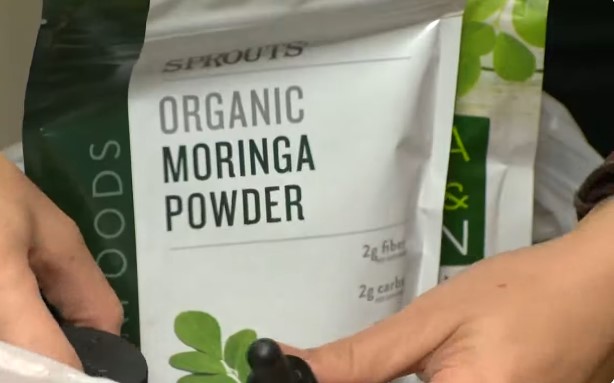1 Teaspoon of Moringa Powder Nutrition Facts
Venturing into the world of 1 Teaspoon of Moringa Powder nutrition facts, you're about to uncover the potent power packed into this seemingly simple green powder. Prepare to be enthralled as we delve into the nutrient-rich profile of this superfood, revealing the surprising health benefits tucked into each tiny spoonful, compelling you to explore the full potential of moringa in your daily diet.
Moringa powder is widely celebrated as a superfood, offering a dense concentration of nutrients in just a small serving. If you’re looking to incorporate a powerhouse of vitamins and minerals into your diet, understanding the nutritional content of just 1 teaspoon of Moringa powder can reveal why it’s a valuable addition to your daily routine.

Introduction to Moringa Powder
1 teaspoon of Moringa powder may seem small, but don’t let its size fool you—it packs a significant punch in terms of nutrition. Derived from the leaves of the Moringa oleifera tree, this green powder is known for its high levels of essential nutrients, including proteins, vitamins, minerals, and antioxidants. Adding Moringa to your diet can provide numerous health benefits, ranging from enhanced energy levels to improved immunity and even better skin health. Whether you’re blending it into smoothies, sprinkling it on your salads, or stirring it into soups, understanding its nutritional profile will help you make the most out of this superfood.
Nutritional Breakdown
Basic Nutrient Content
- Calories: 6 kcal
- Carbohydrates: 1 g (0.4% DV)
- Protein: 1 g (19% of calories)
- Fat: 1 g (54% of calories)
- Fiber: 1 g (2% DV)
- Sugars: 0 g
Vitamins and Minerals
- Calcium: 80 mg (8% DV)
- Iron: 1 mg (14% DV)
- Vitamin A: Significantly high levels compared to common sources like carrots.
Antioxidants
Moringa is rich in antioxidants like beta-carotene and vitamin C, which play a crucial role in combating oxidative stress and inflammation. These properties contribute to its potential benefits in preventing chronic diseases such as heart disease and cancer.
Health Benefits
1. Boosts Immunity
Moringa’s high vitamin C content helps to strengthen the immune system, making it more effective in fighting off infections.
2. Supports Bone Health
With calcium levels higher than milk, Moringa is excellent for maintaining strong bones and preventing osteoporosis.
3. Manages Blood Sugar Levels
Research suggests that Moringa can help regulate blood sugar levels by lowering insulin resistance and reducing blood glucose levels.
4. Reduces Inflammation
The anti-inflammatory properties of Moringa, due to compounds like isothiocyanates, make it effective in reducing inflammation, which is beneficial for conditions like arthritis.
5. Promotes Heart Health
Moringa’s ability to reduce cholesterol and its antioxidant content helps in preventing heart diseases.

Frequently Asked Questions
How much Moringa powder should I take daily?
While there is no standard dosage, starting with 1 teaspoon and gradually increasing to 1-2 teaspoons per day is generally recommended. However, consult with a healthcare provider before starting any new supplement.
Can I take Moringa powder on an empty stomach?
Yes, Moringa powder can be taken on an empty stomach, but if you experience discomfort, try consuming it with food.
Is Moringa powder safe for everyone?
Moringa is generally safe for most people, but pregnant or breastfeeding women should consult their doctor before use. It may also interact with certain medications, so it’s important to speak with a healthcare provider if you are on medication.
Conclusion
Moringa powder, even in as little as 1 teaspoon, offers a substantial nutritional boost, making it an easy and convenient way to enhance your diet. Whether you’re looking to improve your overall health, manage specific conditions, or simply add a superfood to your meals, Moringa powder is a versatile and potent choice.
Read also:






